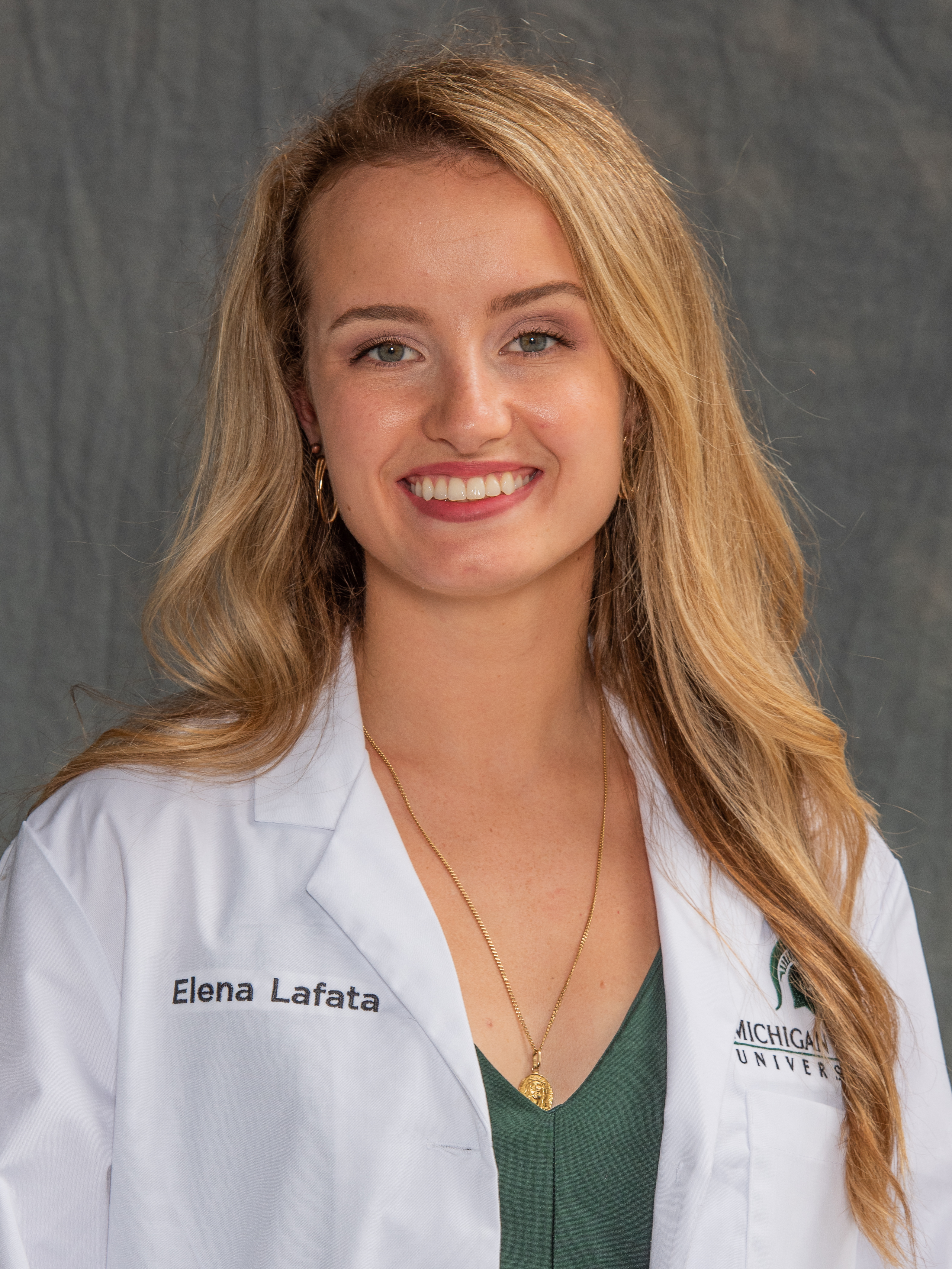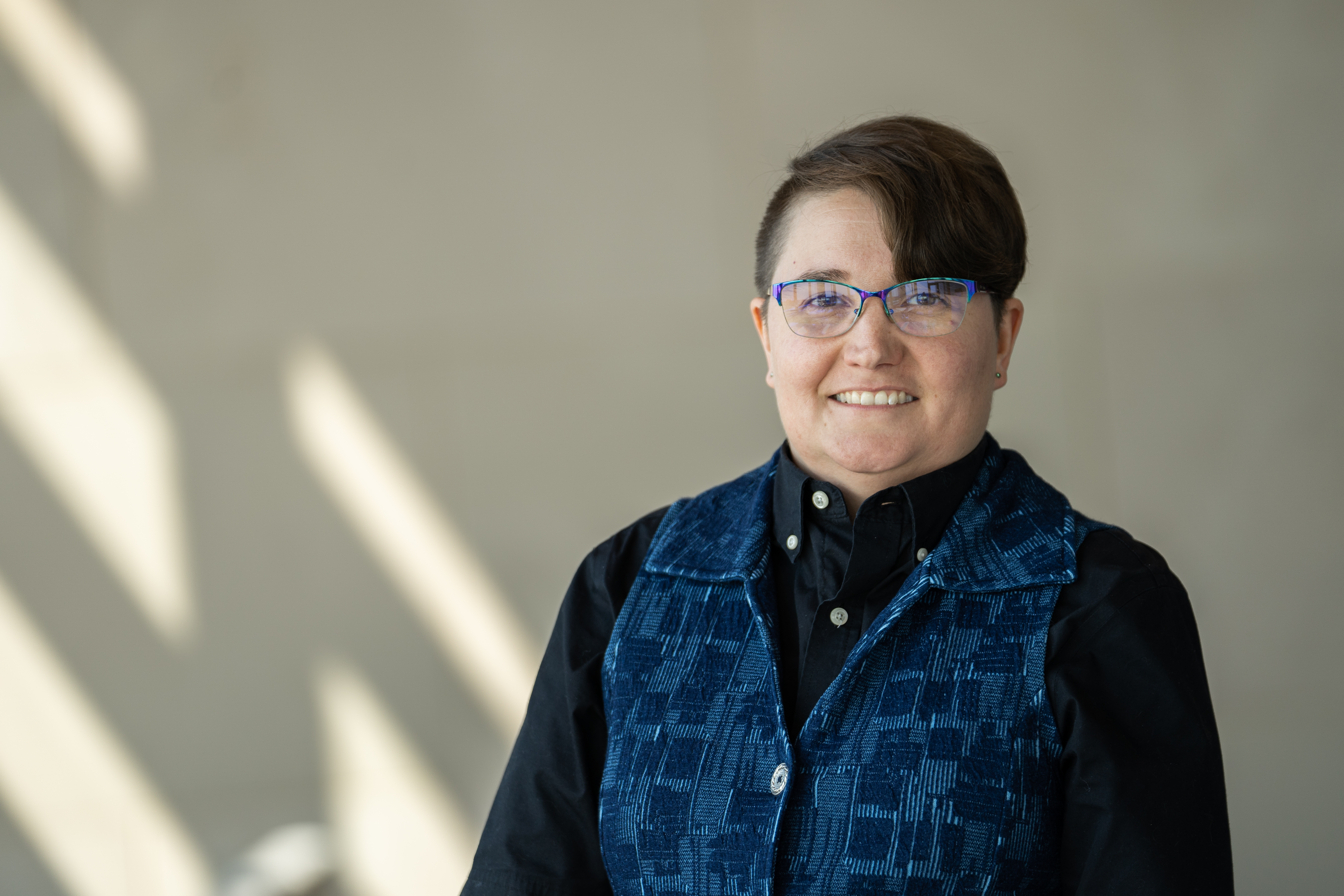New toolkit empowers clinicians and the LGBTQ+ community to make informed decisions on HIV prevention
October 25, 2023
 Most people who find themselves on bed rest after a major surgery aren’t looking for extra responsibilities. But for Elena Lafata, third year medical student at Michigan State University College of Human Medicine, a passion project was just what she needed to help get her mind off of her pain and onto helping others.
Most people who find themselves on bed rest after a major surgery aren’t looking for extra responsibilities. But for Elena Lafata, third year medical student at Michigan State University College of Human Medicine, a passion project was just what she needed to help get her mind off of her pain and onto helping others.
It all started when Jay Knight, DNP, MSN, RN, gave their presentation “The Power of Pronouns” to Lafata’s class. Having been raised by her godfather and his partner, Lafata considers herself a “daughter of the [LGBTQ+] community.” When she learned about the work Dr. Knight was doing to assist clinicians with the identification of patients at risk for HIV, she was intrigued and reached out to see if she could help during her recovery.
It turned out that Dr. Knight was in need of someone who could assist with research on the specific issue of PrEP, an FDA-approved drug that prevents HIV if taken before exposure. Research shows that PrEP is underutilized both nationally and locally. Dr. Knight is a member of the board of directors for the Grand Rapids LGBTQ+ Healthcare Consortium. Since 2017, this group has been identifying barriers clinicians face when prescribing PrEP and was ready to turn their data into action.
Equipped with Dr. Knight’s expertise and Lafata’s willing heart during her recovery, the two set out to create an online PrEP toolkit that would serve both clinicians and community members. “This project's purpose is to bridge knowledge gaps, offering education and resources to clinicians and communities globally, empowering informed PrEP decisions for equitable HIV prevention,” said Lafata.
One of Lafata’s main tasks was mapping out the webpages for the online toolkit. As she delved into the research, she was surprised by how much stigma still surrounds the use of PrEP. This led to the inclusion of a section titled “Shutting Down HIV and PrEP Stigma.” Along with helpful links to resources, the toolkit also provides advice on how to speak with your health care team about PrEP, and then flips the script to aid clinicians who might be worried about bringing it up to patients.
 Dr. Knight’s background in clinical informatics and their research on HIV risk reduction allowed them to think proactively about ways to alleviate known barriers to PrEP and what clinical tools would be most helpful to include on the website. For clinicians, the toolkit shares HIV prevention information including how to prescribe PrEP, a sample progress note, suggested billing codes, and even Epic Smartlinks to incorporate into their charting. For both patients and clinicians, QR codes provide an easy way to share the toolkit with each other and educate the opposite party on how best to utilize PrEP. The website has only been live for a few weeks, and already it is garnering clicks from around the world.
Dr. Knight’s background in clinical informatics and their research on HIV risk reduction allowed them to think proactively about ways to alleviate known barriers to PrEP and what clinical tools would be most helpful to include on the website. For clinicians, the toolkit shares HIV prevention information including how to prescribe PrEP, a sample progress note, suggested billing codes, and even Epic Smartlinks to incorporate into their charting. For both patients and clinicians, QR codes provide an easy way to share the toolkit with each other and educate the opposite party on how best to utilize PrEP. The website has only been live for a few weeks, and already it is garnering clicks from around the world.
When asked if this project aligns with her future goals as a doctor, Lafata explains that the scope of the toolkit is bigger than that. She isn’t sure exactly which area of medicine she wants to practice; she’s considered both obstetrics/gynecology and anesthesiology. But to her, research about something like PrEP helps prepare her for any patient encounter she might face in any specialty. All patients are “whole people,” she said, and it’s important that doctors overcome inhibitions and stereotypes surrounding sexual health in order to care for their patients well.
As far as she knows, Lafata won’t get any sort of school credit for this project, but she’s not concerned. In fact, she recommends that medical students pursue a research project in an area they’re passionate about, whether or not it will look good on paper. Lafata believes that at the end of the day, patients aren’t the only ones who benefit from a holistic approach to health. Doctors do, too. “This work grows my heart,” said Lafata.

